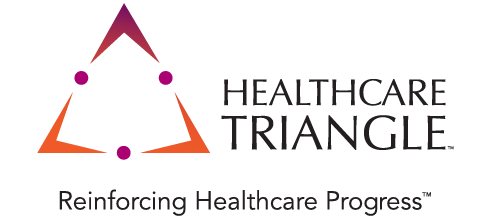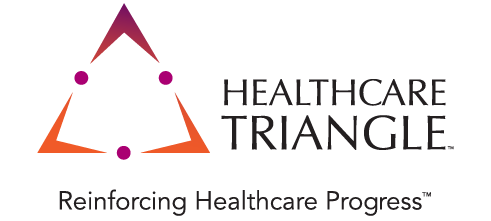Healthcare Disruptors of 2023: The Future of Healthcare Innovation
Roy Sookhoo, Chief Operating Officer
Apr 4, 2023
What are healthcare disruptors?
Healthcare disruptors are companies or technologies that are disrupting the traditional healthcare landscape by introducing innovative ways to deliver better and more affordable care, improve access, address social determinants of health and health inequalities, and physician burnout.
Disruptors are transforming the way we look at healthcare, from virtual and remote services to innovative treatments that give patients access to more personalized care. According to Bain & Company, new primary care models from non-traditional players—such as retailers, payer-owned providers, advanced primary care disrupters and concierge providers —could capture as much as a third of the US primary care market by 2030.
In the coming years, by leveraging emerging technologies such as AI-driven analysis, remote care capabilities, cloud computing platforms, and data analytics, these disruptors have the potential to transform how healthcare organizations deliver care and improve patient outcomes.
Let us dive into some of the key healthcare disruptors!
Amazon’s healthcare disruption transforms the way patients receive care
Amazon, an e-commerce innovator, is leading the charge in disrupting the healthcare industry. In a survey of health tech experts by Health Tech Nerds, an informational platform, 52% said Amazon will be significantly impacting the health systems’ core business in 2023. In 2023 and beyond, Amazon will continue to make strides in healthcare with some these top solutions and platforms:
- Healthcare Cloud platform, which offers cloud-based data storage and secure access to patient records.
- HIPAA (Health Insurance Portability and Accountability) compliant Alexa app, which enables doctors and nurses to quickly access information about a patient’s condition with voice commands.
- Amazon Care app, which permits individuals to connect with medical professionals for virtual care.
The transformative role of Google in the continuum of care
Google continues to be one of the most impactful healthcare disruptors in the market. From remote monitoring systems to virtual healthcare visits, Google is helping to make care more accessible and convenient for patients. In addition, its machine learning technologies are also being utilized in areas such as personalized medicine, predictive analytics, and population health management. Google’s Care Studio expands the capabilities of its clinician-facing search tool using artificial intelligence to summarize and contextualize physicians’ clinical notes.
Apple positioned to be a major player in the healthcare landscape
Apple is fast becoming one of the most influential healthcare disruptors for 2023. The tech giant has been making waves in the industry as it seeks to revolutionize health records and genetic testing, two areas that could have a major impact on the future of digital health. Through its Health app and HealthKit platform, Apple is aiming to make accessing medical information easier for both consumers and medical providers, and for patients to keep track of their health data. Meanwhile, Apple’s foray into genetic testing could help to identify diseases before they manifest and offer personalized treatments. In addition, Apple will continue to turn its consumer products (Apple Watches) into portable patient health hubs.
Microsoft Health play hinges on its cloud platform and pivots to AI (Artificial Intelligence)
Microsoft’s Healthcare NExT project will bring together data experts, researchers, and developers to solve some of the most pressing healthcare challenges. Through AI-driven technologies like predictive analytics and machine learning, Healthcare NExT will analyse, store and track patient data to better understand how diseases are diagnosed and treated. Microsoft is boldly forging into the healthcare AI space with a series of strategic partnerships aimed at pushing innovation and enhancing patient care.
CVS Health: From pharmacy to whole person care
CVS Health has been a key player in the healthcare disruptor space in recent years. From its innovative MinuteClinic concept to its proactive approach to managing chronic conditions, CVS Health is utilizing innovative technology to improve healthcare outcomes and reduce costs. By being both a provider and payor, the company has transformed into an integrated healthcare organization looking to grow its primary care footprint.
Optum makes healthcare accessible through its new digital solutions
OptumCare is a healthcare disruptor that is shaking up the primary care sector. By leveraging their expertise across predictive analytics and machine learning capabilities OptumCare is transforming how primary care is delivered. Their solutions are helping to drive greater efficiency and accuracy in the delivery of healthcare services, while also providing greater patient engagement. From predictive analytics to smart technology, OptumCare is providing innovative solutions that are revolutionizing the healthcare industry.
Samsung targets niche sectors of healthcare
Through its Samsung Health Platform, Samsung is focused on providing an integrated, connected care experience for patients and healthcare providers alike. The platform uses AI-driven technologies such as voice recognition and natural language processing to provide personalized care for each patient. Additionally, the platform allows for remote monitoring of vital signs and data-driven insights that can help identify health trends and provide actionable advice.
As we have seen, healthcare disruptors are making an impact and continue to revolutionize the healthcare industry, creating a future where patients are provided with improved access to quality healthcare, removing non-value-added work from the clinicians, allowing them to focus on what matters most to them and their patients.


